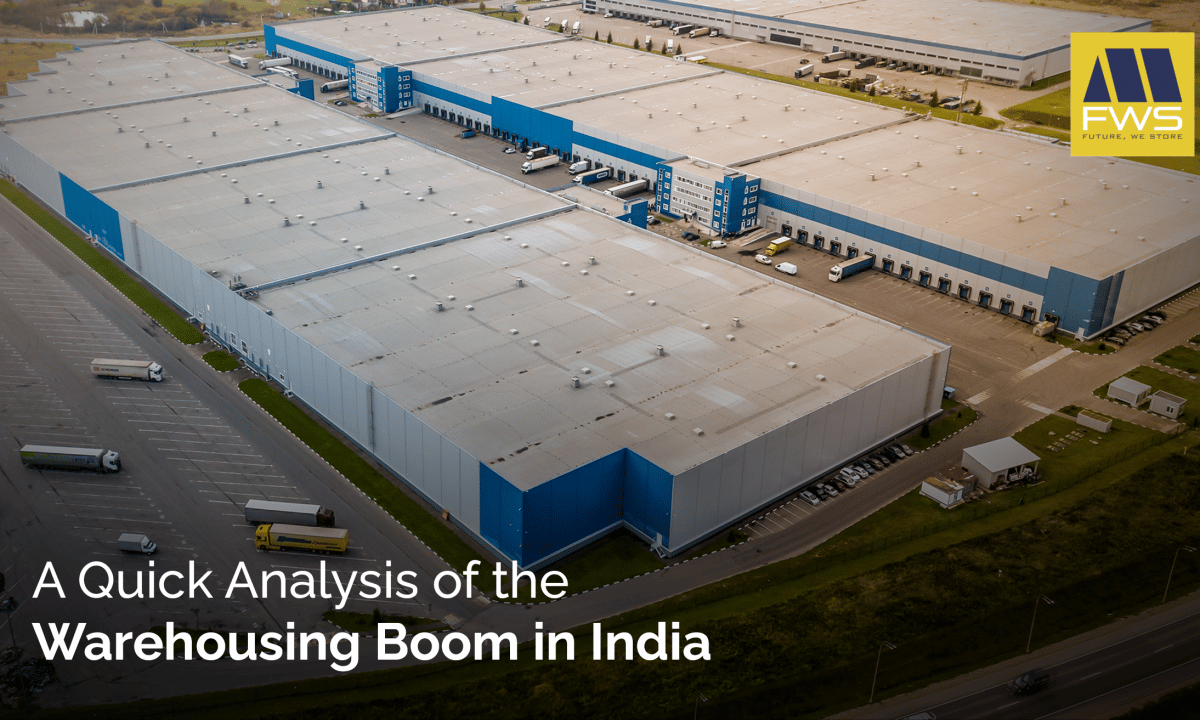Blog

A Quick Analysis of the Warehousing Boom in India
Agricultural warehousing, also known as ‘agri warehousing’, is the storage of agricultural products such as grains, seeds, and produce in dedicated warehouse facilities. These facilities are crucial for maintaining the quality and safety of these products and ensuring that they are available for supply and consumption when needed.
Significance of Agri Warehousing
The importance of agri-warehousing has grown in recent years as the global population has increased and the demand for food has risen. With an increasing number of consumers day by day, the need for efficient storage and distribution of agricultural products has become paramount. Agri-warehousing helps to ensure that food is available when and where it is needed and that it is of the highest quality and safety standards.
How is Agri Warehousing beneficial?
1. Farmer’s Upliftment
One of the key benefits of agri-warehousing is that it allows farmers to store their products until they can get the best price for them. This helps to ensure that farmers can earn a fair price for their products and that they are not forced to sell at low prices due to a lack of storage options. Additionally, agri-warehouses can also provide farmers with a variety of services such as cleaning, grading, and packaging of their products, which can improve the quality of the products and make them more desirable to buyers.
2. Balancing Prices
Another important benefit of agri-warehousing is that it can help to stabilize food prices. When agricultural products are stored in warehouses, there is less risk of price fluctuations due to a sudden shortage of a particular product. This helps to ensure that food prices remain stable and that consumers do not have to pay more than they should for their food.
3. Maintaining Food Standards
Agri-warehouses also play an essential role in food safety. These facilities are equipped with the latest technology and equipment to ensure that the products stored within them are free from contaminants and pests. This helps to ensure that the food that is eventually consumed is safe for human consumption.
Challenges for Agri Warehousing
In the current situation, the agri-warehousing system is facing its own share of challenges. One of the major challenges is the high cost of construction and maintenance of agri-warehouses. Additionally, the lack of proper infrastructure and regulations can also make it difficult for farmers to access these facilities. But the advancements in technology and digitalization of the industry are making it more accessible and cost-effective.
Another challenge is the lack of a proper inventory management system in these warehouses. Many warehouses are still using traditional methods of inventory management, which can lead to inaccuracies and inefficiencies. This can result in products being stored for too long, resulting in spoilage and loss of income for farmers. But the implementation of modern inventory management systems can help to overcome this challenge.
Key Takeaways
To summarize, agri-warehousing is a critical component of the global food supply chain. These facilities provide farmers with the storage options they need to ensure that their products are of the highest quality and safety. They also help to stabilize food prices and ensure that food is easily available when and where it is needed. However, the rising cost of construction and maintenance, lack of proper infrastructure and regulations in many areas, and scarcity of proper management are some of the challenges that need to be addressed in order to make the agri-warehousing system more effective and efficient.




